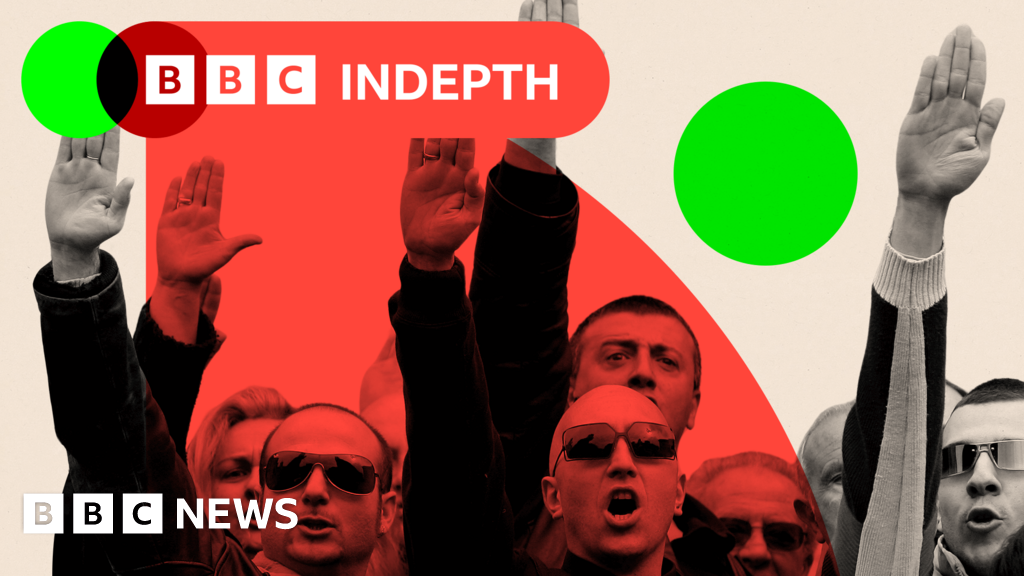32 minutes ago, Mark Lowen, BBC Italy correspondent, captures the unsettling scene in Milan where a group of far-right loyalists gather to commemorate the death of a student killed by anti-fascists almost 50 years ago. The leader of the group summons his followers to attention, leading them in a fascist salute with outstretched arms and shouts of allegiance. This display, reminiscent of a dark era in Italy’s history, is not uncommon in the country, where such commemorations occur annually. The current government, led by Prime Minister Giorgia Meloni of the Brothers of Italy party, has roots in post-war fascism, raising concerns that extremist ideologies are becoming more mainstream. Despite claims of change, some fear that Italy has not fully reckoned with its fascist past. The presence of groups like Forza Nuova, advocating for extreme right-wing policies, adds to the political tensions in the country. As Italy grapples with its history and the rise of extremist movements, the question of how to address these challenges remains unanswered.

